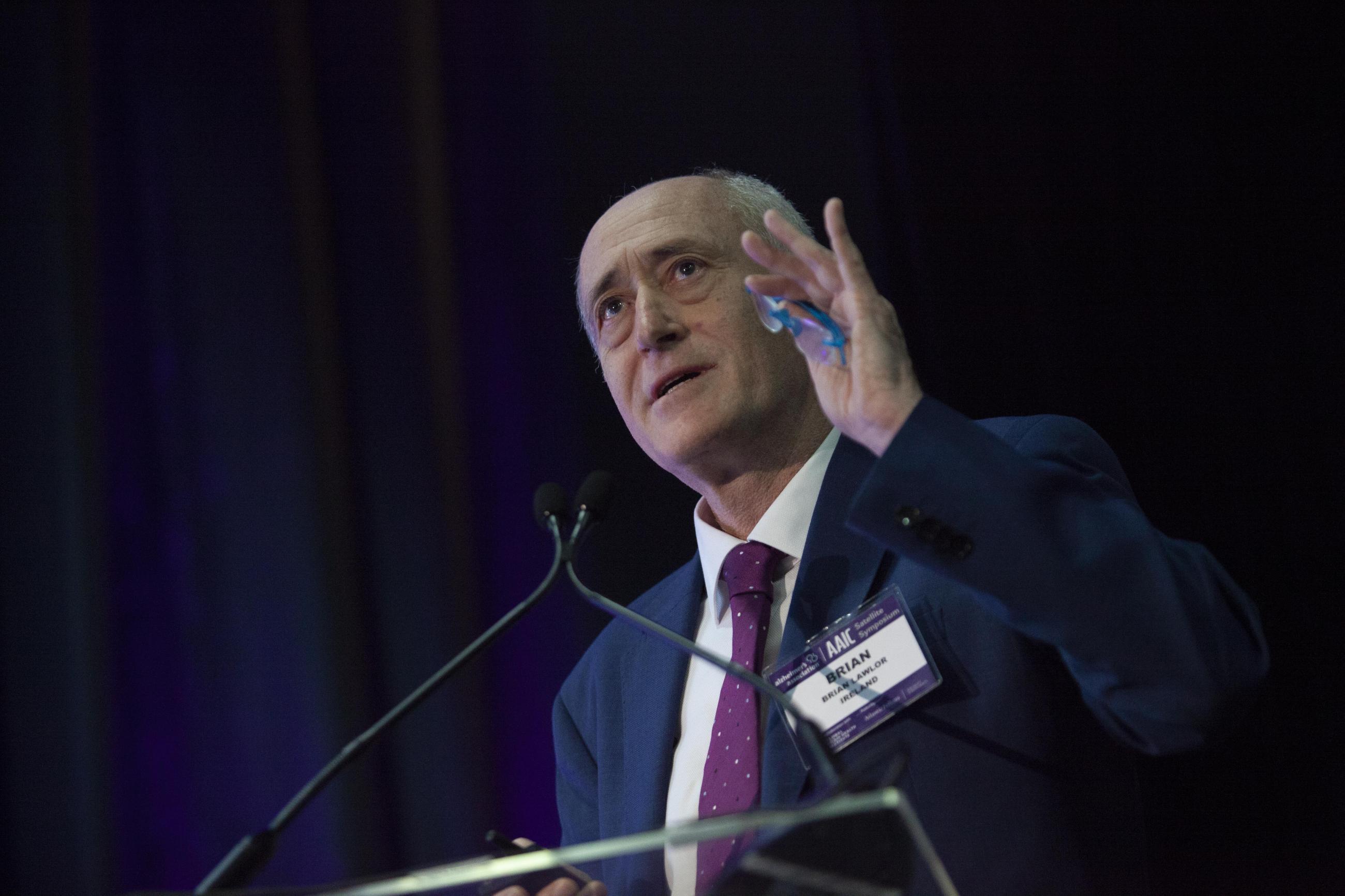Faculty Expertise
The faculty of GBHI is composed of interdisciplinary experts from University of California, San Francisco (UCSF) and Trinity College Dublin (Trinity) in the fields of neurodegeneration, mental health, aging, dementia prevention, brain health, health economics, policy, technology, and more. With leading expertise and global networks, the GBHI faculty can fully immerse Atlantic Fellows in a dynamic learning environment with unique opportunities for professional collaboration and growth.

Featured Networks and Areas of Expertise
The Fein Memory and Aging Center
The UCSF Fein Memory and Aging Center (MAC) is one of the leading centers in the world for the assessment and diagnosis of frontotemporal dementia and includes experts in neuropsychology, neuroimaging, genetics, neuropathology, and treatment of frontotemporal dementia, Alzheimer’s disease, and related conditions. The Fein MAC is linked to an international network of researchers and clinicians working in the field of neurodegeneration and dementia across the USA, Europe, and Latin America.
Arts, Humanities, and Creativity
Arts, humanities, and creativity are key to enhancing wellbeing and brain health as we age. There is a strong focus on these disciplines at both founding university sites, bringing arts into health at the clinical and research settings. GBHI faculty also work within state-of-the-art facilities designed for older people and those with neurodegenerative disorders. These settings provide an opportunity to explore how architecture, design, and creative life can play a role in supporting independent function and quality of life.
Longitudinal Studies of Cognition, Aging and Dementia Risk
A number of GBHI faculty are international leaders in the area of longitudinal studies in aging and the epidemiology and prevention of dementia. Using data from longitudinal studies in aging, including the Health and Retirement Study (HRS) and The Irish Longitudinal Study on Aging (TILDA), researchers are discovering factors that can protect brain health and decrease the risk of dementia.
Neuroscience and Neuropsychology
Many of our faculty use state-of-the-art psychological and neuroimaging tools to better understand the cognitive neuroscience of emotion, attention, decision making, and consciousness. Others work with detailed neuropsychological assessment and innovative neuroimaging techniques to understand the mechanisms underpinning language changes in neurodegeneration.
Frailty, Loneliness, and Isolation
Our physical and mental health can influence how our brain functions in late life. Faculty members in the field of geriatrics and psychiatry are examining how frailty affects the brain and how loneliness and isolation can impact mental and cognitive functioning as we get older.
Health Economics and Social Policy
Researchers in health economics and social policy combine their efforts across both sites to examine the social and economic determinants of brain health and how these factors might be mitigated to improve outcomes for older adults facing barriers to health and opportunity.
Dementia Diagnosis
Researchers and faculty at GBHI are exploring innovative ways to improve the diagnosis and diagnostic accuracy of dementia worldwide using a number of different approaches, including culturally adapted assessment tools and computerized tablet-based assessments that are not significantly influenced by literacy.
Caregiver Burden in Dementia
Most of the burden of care falls on informal caregivers and mostly on women. Faculty at both UCSF and Trinity are examining the impact of caring on caregivers of people with dementia.
End of Life Care in Dementia
The number of people living and dying with dementia is increasing worldwide. Faculty at both UCSF and Trinity are studying palliative care in dementia and the financial and emotional costs of dementia care at the end of life.

